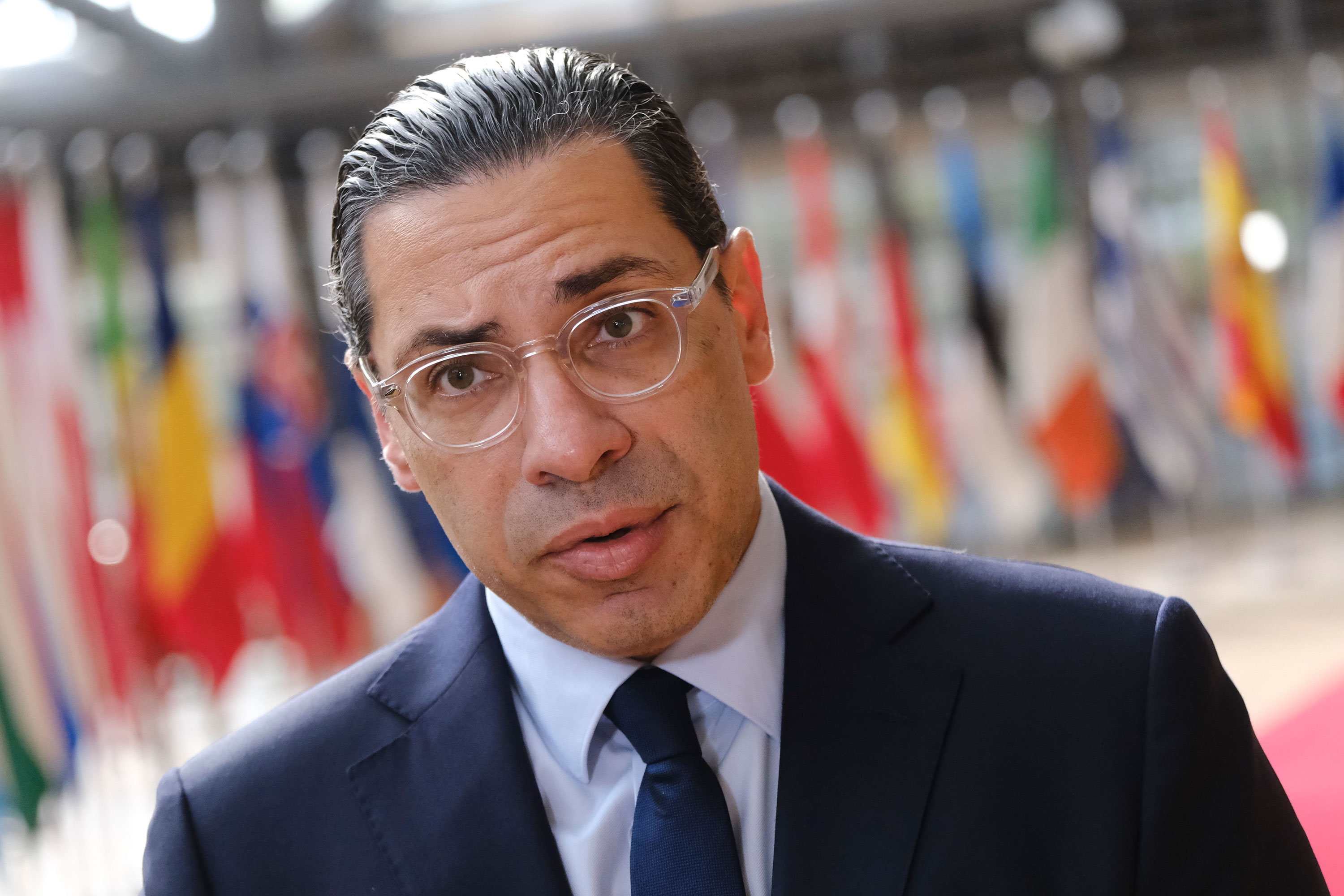Foreign Minister Constantinos Kombos on Monday attacked opposition political parties over the Iranian government’s denial of assertions made by President Nikos Christodoulides that the country had asked Cyprus to convey a message to Israel amid an escalating conflict between the two countries.
He was asked on the issue by CyBC radio.
“First of all, we are not going to publicly comment on statements or announcements made by other countries with which we will have contacts and will continue to have contacts,” Kombos said.
“Allow me to say this: I mentioned earlier the need for messages to be passed on and for influence to be exerted mainly by the European Union, and this is something that has been publicly desired by various people. These are the messages. The recipients are the two actors,” Iran and Israel.
He then criticised opposition parties for their lack of reaction when the Russian delegation to the United Nations Security Council suggested that the United Kingdom’s bases on the island had been used to defend Israel from Iranian missiles.
“We saw no position be taken, heard no comments … especially on the subjects of the bases, and that is something extremely important and dangerous. You know that on Friday, at the Security Council, Russia took a position in a way which put the Republic of Cyprus in danger with reference to activity which took place at the bases,” he said.
He added that this was “responded to within a few minutes by the UK, which characterised these things as nonsense”.
“Where was the mention and the comments around this issue made by those who are now criticising us? There was none,” he said, adding that the opposition should “not talk about hysteria but take action”.
He was then pressed on the matter of whether there was a message or not, given the Iranian government’s denial.
“The basic question is whether there is a message which needs to be conveyed and what this message is. Well, I think the message is absolutely clear, that it is the issue of escalation, and I will ask a question about the message. Is it or is it not a message that for every attack, there will be a retaliation? Is this a message … It is a message, not a proposal,” he said.
Radio presenter Eleni Vrettou then pointed out that Iran had “said this publicly” and that “no one needed to send that message during a private conversation”, to which Kombos twice asked, “should it not have been said?”.
“Why should it not have been said? Does the moment not require it? That is, is this something that should not have been mentioned?” he asked, before criticising “all this noise that was made”.
Vrettou then interjected, saying, “the president caused this noise – if the president did not say it, no one would have asked if it was true”.
“In my opinion, it was said very correctly. The moment requires that there be this clarity,” Kombos responded.
Asked again whether there was a message, he chose to speak about the ‘Estia plan’, wherein Cyprus acts as a hub for EU and third country nationals to be evacuated from conflict zones to the island before travelling onwards to their countries of origin.
“At this moment, there is in progress a huge effort to evacuate citizens of [European Union] member states. We constantly receive messages, we receive requests, which we are called upon to manage,” he said.
He then added that the situation in the Middle East is at present “particularly critical”, and that it will “unfortunately become much worse”.
“Instead of this concern which should have existed at this particular moment in time, we found that for some, it was an appropriate opportunity to practice toxicity. So, we will not follow, we have very serious work to do, and we will call on everyone to try and engage with us at least in this specific period of time,” he said.
He added on this point that there is a “huge organised effort from outside to spread fake news, which is trying to target our country”, before adding that “we must be very careful”.
Questioned over whether Christodoulides’ statement about a message from Iran was careful, he said it was “correctly made”, before Vrettou then asked him whether it was made to “indicate that we have a role”.
“We do not need to indicate that we have a role and we are not trying to prove that we have a role greater than that which we have. What exists in reality is that some are trying to belittle the role we do have, and many people are very glad that this is their impression. This is a false impression,” he said.
Iran’s denial of Christodoulides’ assertion that Cyprus had been asked to convey a message to the country saw the government draw criticism from opposition political parties on Saturday night, with Disy leader and House president Annita Demetriou saying the seriousness of the situation in the Middle East “does not allow for frivolous statements”.
Akel leader Stefanos Stefanou, meanwhile, said that “these moments are dangerous, and therefore, seriousness is required from everyone, especially the president”, adding, “developments in our region are not suitable for domestic political consumption”.
Iran’s foreign ministry’s spokesman Esmaeil Baghaei was on Sunday quoted by news agency Reuters as having said that Iran “did not send any message to Israel via a third country”.
His comment came after President Nikos Christodoulides had said earlier in the day that Iran “has asked us to convey a message to Israel”, and that “we will do so”, amid an escalating conflict between the two countries.






Click here to change your cookie preferences